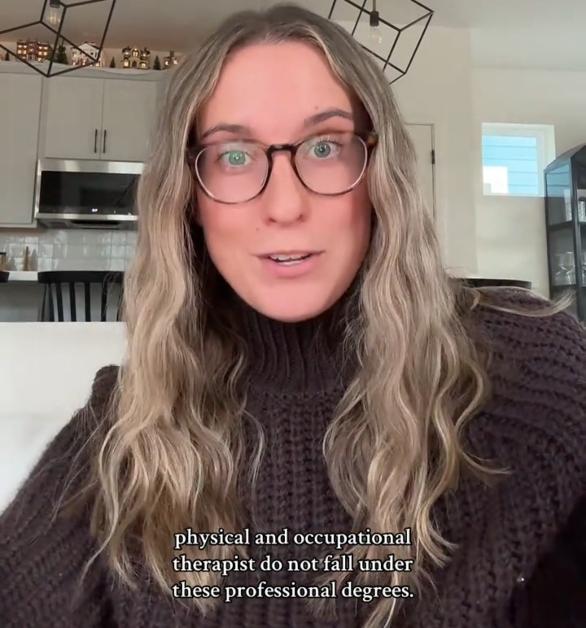Healthcare Industry Hopefuls Panic After New Plans Call for Reclassifying Nursing Degrees
A screenshot has circulated saying that nursing has been removed from professional degrees. Not exactly, but it's still bad news.
Published Nov. 21 2025, 4:30 p.m. ET
Healthcare in the United States is a hot button topic with people arguing about a million different topics and disagreeing on all manner of the way the system functions.
But there's one thing that most people can agree on: nurses make up the backbone of the industry, and without nurses, CRNAs, and other professional degree workers, there would be no healthcare to argue about.
However, news broke in November 2025 that the Education Department was looking to reclassify the meaning of professional degrees, which would change the financial aid availability for a whole host of vital professions, such as nursing. So, what does it mean that nursing may not be a professional degree anymore?
It's not great news.
What does nursing not being a professional degree anymore mean?
When the administration of President Donald Trump and his Republican Congress passed the controversial "Big Beautiful Bill," there was an educational impact that not many people realized at the time.
The bill placed caps on financial aid and loan ceilings for certain degrees. In essence, USA Today reports, new loan caps would be placed on professional degrees, which are generally degrees that require licensure and education beyond a typical bachelor's degree. Even worse, nonprofessional degrees would be subjected to even lower loan caps.
A screenshot circulated the internet that seemed to suggest that nursing had been removed from the Department's list of professional degrees, meaning that those pursuing a nursing degree would be subject to loan caps for non-professional degrees, which are even more restrictive than those for professional degrees.
However, per a 1965 federal law (via USA Today), nursing was never on the list of professional degrees. So, what does it all mean? While nursing degree definitions aren't changing, it's still bad news.
What it boils down to is that professional degrees will have higher loan caps than non-professional degrees. With nursing considered a non-professional degree, despite the fact that there are master's-level programs for nursing and nurse practitioners, they will be subject to loan caps for non-professional degrees, which are significantly lower.
It could be a devastating blow to healthcare industry hopefuls who want to pursue specialization and education beyond a BSN (bachelor's of nursing).
Healthcare world panics as nursing shortage potentially faces worsening landscape from degree classification changes.
This could make the already dire nursing shortage significantly worse, since those looking to graduate from nursing programs would be limited by financial aid in the education they could seek, which also theoretically limits their earning potential and may turn people away from the profession. And, understandably, healthcare workers and nursing hopefuls are panicking over the news.
While the theory around setting the loan caps seems to be that college costs are out of control and the Education Department wants to force colleges and university to lower costs, not everyone is convinced it'll work out.
Under a video by education TikToker Mrs. Frazzled explaining the new classification rules, one user wrote, "Ooorrr…will schools have to finally lower their bloated rates??? The reason college is so expensive is that people could keep getting more loans. If nobody can pay it, they may have to lower prices. Maybe."
But the TikToker simply replied sardonically, "Dream big."
Nonprofessional degree loans will now be capped at $20,000 per year per student, with a $65,000 total limit. And even professional degrees are in trouble, with students after July 2026 able to borrow up to $50,000 per year and up to $200,000 overall. Since many medical schools exceed that amount, it's a concerning development for both students and the average American alike.
Other users noted that with teaching, nursing, and other female-dominated industries considered "nonprofessional," it will be harder for many women to pursue degrees, potentially increasing the gender inequality gap in the workplace, and creating even more dire shortages in some of the already trained industries that have been pleading for relief for the last decade.

